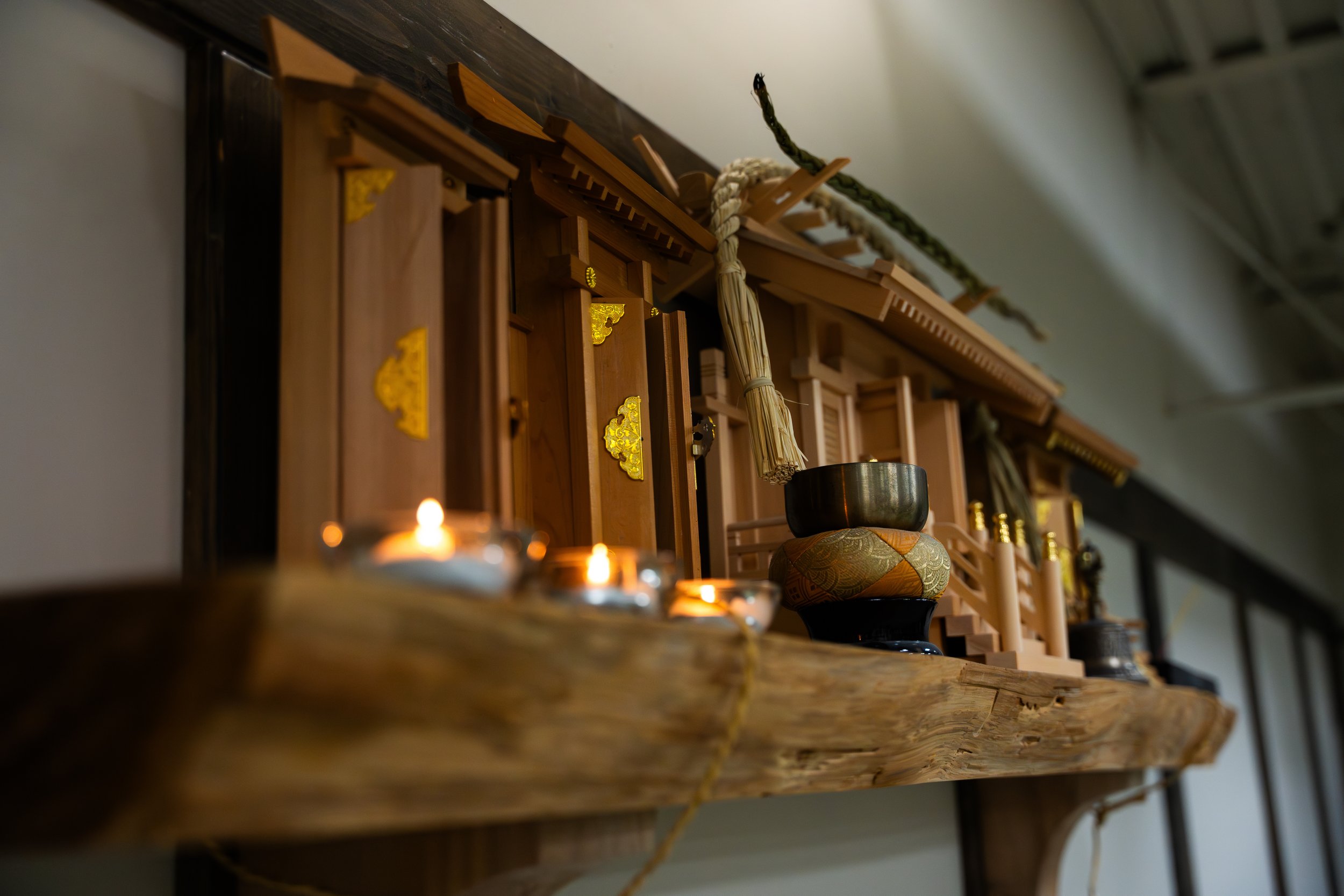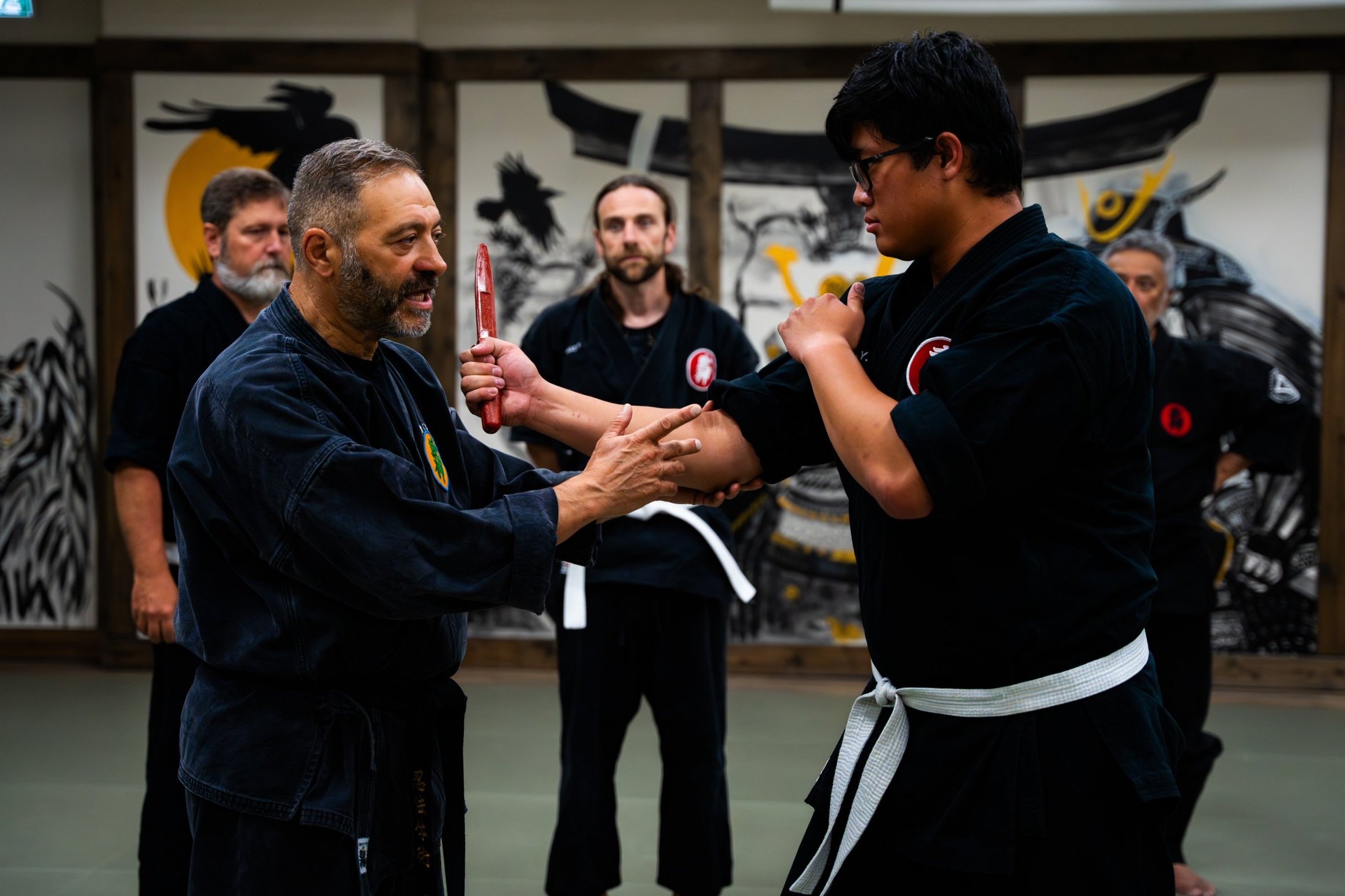Martial Arts in Calgary: Finding the Right Dojo for You
Choosing a martial arts school is a significant decision that can shape your fitness, self-defense skills, mental discipline, and overall well-being. With Calgary’s vibrant martial arts community, finding the right dojo to suit your needs can feel overwhelming. This guide is designed to help you navigate the selection process, ensuring that whether you’re an adult looking for personal growth or a parent seeking a nurturing environment for your child, you find the perfect fit. We’ll explore key considerations, benefits of training, and why a focus on traditional practices—like those offered in a Bujinkan Ninpo Taijutsu curriculum—can offer an exceptional experience.
Why Choose Martial Arts Training in Calgary?
Calgary is home to a diverse array of martial arts schools, each offering unique training methods, philosophies, and styles. Whether you are interested in traditional martial arts, modern self-defense techniques, or sport oriented martial arts; training in Calgary gives you access to experienced instructors and a supportive community. Training in a local dojo or gym means more than just learning techniques—it’s about building a community, engaging in cultural traditions, and developing discipline that transcends the training mat. For many, martial arts provide a holistic approach to fitness that includes physical conditioning, mental clarity, and emotional balance.
Key Factors to Consider When Choosing a Dojo
Before stepping into your first class, it’s important to evaluate several factors to ensure the dojo aligns with your goals and values. Consider the following:
1. Instructor Credentials and Experience
Expertise and Training: Look for instructors with a robust background in their martial art, such as years of experience, formal certification, and a deep understanding of the art’s history. For example, a dojo specializing in traditional Bujinkan Ninpo Taijutsu will have instructors dedicated to preserving the authentic teachings.
Teaching Style: Ensure the instructor’s style is compatible with your learning preferences. A supportive and respectful teaching approach can significantly enhance your experience.
2. Training Philosophy and Curriculum
Traditional vs. Modern Techniques: Some schools focus on modern self-defense techniques while others emphasize traditional methods rooted in history and philosophy. Consider what resonates with you. If you’re drawn to the rich traditions of martial arts, look for a dojo that maintains a traditional curriculum, such as those based on Ninpo Taijutsu principles. Our dojo blends both into a comprehensive combat system.
Adaptability for All Ages: A quality dojo offers programs that cater to different age groups and skill levels, ensuring that both beginners and advanced practitioners can grow within the same framework.
3. Facilities and Environment
Clean and Safe Space: The quality of the training space is important. A well-maintained dojo with modern safety standards is a key indicator of professionalism.
Community and Culture: Observe the atmosphere during a visit. A welcoming environment where members support one another is a strong sign of a healthy training community.
4. Class Structure and Scheduling
Flexibility: Look for classes that fit your schedule. Many dojos offer a range of timings to accommodate working professionals, parents, and students.
Small Class Sizes: Smaller groups often allow for more personalized instruction and faster skill development.
5. Cost and Commitment
Transparent Pricing: Make sure that membership fees and additional costs are clear. Many reputable dojos provide a trial class or introductory offer.
Long-Term Value: Consider not just the cost but the overall value you gain in terms of skill development, discipline, and personal growth. Many of our students have been around for 10+ years and have a wide range of not only martial arts knowledge but also life experience in adventurous fields. (Military, Police, Pilots, Paramedics, etc)
Training for Adults: Empowerment and Personal Growth
Sensei Orlando Mancina (15th Dan) demonstrating how to use one of the nine basic angles of attack with the knife (from Tantojutsu) before showing the appropriate knife defense technique. (from Muto Dori no Kata)
For many adults, martial arts training is not only a way to learn self-defense but also a means to improve overall health and well-being. Here are some key benefits for adult practitioners:
Physical Fitness and Self-Defense
Strength and Endurance: Regular training builds muscle strength, flexibility, and endurance. This is particularly important for adults looking to maintain fitness and vitality.
Self-Defense Skills: Knowing how to defend yourself is a powerful confidence booster. Training in disciplines such as traditional Bujinkan Ninpo Taijutsu equips you with techniques that are both practical and historically grounded.
Stress Relief: The physical activity and mental focus required in martial arts provide an excellent outlet for stress relief, making it a perfect complement to a busy lifestyle.
Mental Clarity and Discipline
Focus and Concentration: Martial arts training requires intense concentration, which can enhance mental clarity and improve decision-making skills in daily life.
Personal Discipline: The structured environment and respect for tradition in martial arts foster a strong sense of discipline. This discipline often translates into other areas of life, including career and personal relationships.
Community and Networking
Supportive Environment: Many adult practitioners find a sense of community and camaraderie in their dojo. The shared commitment to growth creates lasting bonds and a supportive network.
Continuous Learning: Martial arts offer a journey of lifelong learning, where each class is an opportunity to improve not just physical techniques, but also personal character.
Training for Kids: Building Confidence and Character
Sensei Elisa Mancina (4th Dan) demonstrating how to create distance in a certain scenario.
Martial arts can be incredibly beneficial for children, offering much more than just physical training. For parents in Calgary looking to find the right environment for their kids, here are some key benefits:
Developing Discipline and Respect
Structured Learning: Martial arts classes provide a structured environment where children learn about discipline, respect, and responsibility. These values help in both academic settings and social interactions.
Focus and Concentration: Regular practice improves focus, which can contribute positively to school performance and other extracurricular activities.
Physical Health and Coordination
Fitness and Coordination: Kids gain improved motor skills, balance, and coordination through regular training. This is a fun and engaging way to encourage physical activity.
Self-Defense Awareness: While the primary focus is on discipline and technique, children also learn basic self-defense principles, which can build confidence and a sense of personal security.
Social Skills and Confidence
Positive Social Interaction: Dojos offer a community where children can meet peers with similar interests, fostering teamwork and social skills.
Building Confidence: Mastering new techniques and progressing through ranks boosts self-esteem and instills a sense of achievement.
Why Choose a Traditional Dojo in Calgary?
In Calgary, there are many martial arts schools, but not all are created equal. A dojo that offers traditional training, particularly in a discipline like Bujinkan Ninpo Taijutsu, stands out for several reasons:
Authenticity: A traditional dojo emphasizes the time-honored methods, philosophies, and techniques that have been passed down through generations. This authenticity is a key differentiator.
Holistic Development: Training goes beyond physical combat; it also nurtures mental strength, emotional balance, and ethical values.
Community Spirit: A dojo with deep roots in traditional practices fosters a tight-knit community, where the teacher-student relationship is valued, and respect for the art is paramount.
Our dojo, for instance, is known for its commitment to traditional training (with some modern additions) while providing a welcoming atmosphere for all age groups. By maintaining the integrity of Ninpo Taijutsu, we ensure that every class is not just about learning self-defense but also about embracing a way of life rooted in respect, discipline, and continuous improvement.
Final Thoughts
Finding the right martial arts school in Calgary requires careful consideration of several factors, from instructor quality and training philosophy to facilities and community spirit. Whether you’re an adult seeking to enhance your self-defense skills and overall fitness or a parent looking to provide your child with a disciplined and supportive environment, the key is to choose a dojo that aligns with your personal goals and values.
Take the time to visit local schools, observe classes, and speak with instructors and current students. Look for transparency in pricing, a clear curriculum, and a respectful, encouraging atmosphere. By doing so, you ensure that your martial arts journey will be both rewarding and enriching.
In a city as dynamic as Calgary, where martial arts training ranges from modern self-defense systems to deeply traditional practices, making an informed decision is crucial. While there are many options available, choosing a dojo that honors the legacy of traditional martial arts—such as Bujinkan Ninpo Taijutsu—can provide you with a rich, well-rounded experience that stands apart.
Ultimately, your choice of dojo is a personal decision. Focus on what matters most: quality instruction, a supportive community, and a training regimen that challenges and inspires you. With these considerations in mind, you’ll be well on your way to discovering the martial arts school that perfectly suits your needs and propels you toward excellence—both on and off the mat.
Embrace the journey of martial arts in Calgary and make a choice that not only hones your physical skills but also enriches your life in countless ways. Your future in martial arts starts here, in a dojo that values tradition, excellence, and the holistic development of every student.



